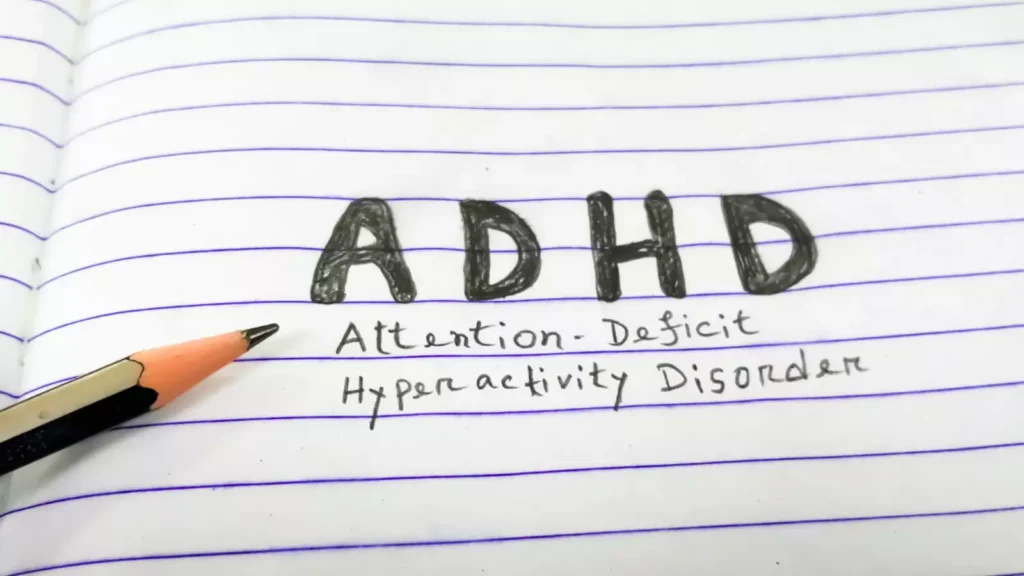
Attention-Deficit/Hyperactivity Disorder (ADHD) is a common neurodevelopmental disorder that affects both children and adults. Characterized by persistent patterns of inattention, hyperactivity, and impulsivity, ADHD can impact daily functioning and overall well-being. At Mysterious Minds Institute of Mental Health and Neuropaychiatric Sciences, we specialize in diagnosing and treating ADHD using the most advanced techniques, helping individuals regain control of their lives and reach their full potential.
In this detailed guide, we’ll explore what ADHD is, its symptoms, common misconceptions, treatment options, and management strategies to help you or a loved one navigate this condition effectively.
What is ADHD?
ADHD is a disorder that affects how the brain functions in terms of attention, focus, impulse control, and activity levels. It is typically diagnosed in childhood, but many individuals continue to experience symptoms into adulthood. Although the exact cause of ADHD is still unclear, it is believed to involve genetic, environmental, and neurological factors.
People with ADHD may struggle with staying organized, following through on tasks, regulating emotions, and maintaining relationships. However, with the right interventions, individuals with ADHD can lead successful, fulfilling lives.
ADHD Symptoms: What to Look For
ADHD symptoms can vary from person to person and may present differently depending on age, but they generally fall into three categories: inattention, hyperactivity, and impulsivity. Below are the key symptoms within each category:
1. Inattention Symptoms
- Difficulty focusing or maintaining attention on tasks
- Frequently making careless mistakes in schoolwork or at work
- Easily distracted by irrelevant stimuli or unrelated activities
- Forgetfulness, often misplacing personal items or missing appointments
- Difficulty following instructions or completing tasks on time
- Tendency to avoid or procrastinate on tasks that require sustained mental effort
2. Hyperactivity Symptoms
- Restlessness or fidgeting, often unable to sit still for extended periods
- Excessive talking, even in situations where quiet is expected
- Difficulty engaging in quiet, calm activities
- Impulsive movements or a sense of needing to be “on the go” constantly
3. Impulsivity Symptoms
- Interrupting others during conversations or activities
- Inability to wait one’s turn in group settings or games
- Making decisions without considering the consequences
- Engaging in risky behaviors without thinking of the dangers
ADHD in Children vs. ADHD in Adults
While ADHD is often diagnosed in childhood, many adults also experience symptoms that can impact their personal and professional lives. In children, symptoms might manifest as trouble sitting still in class, difficulty following instructions, or disruptive behavior. In adults, ADHD can lead to difficulties with time management, organizational skills, and maintaining relationships.
Common ADHD challenges for adults include:
- Chronic lateness or missed deadlines
- Difficulty maintaining focus in conversations or meetings
- Poor time management and prioritization of tasks
- Struggles with organization, forgetfulness, and maintaining routines
Causes and Risk Factors for ADHD
While the precise cause of ADHD is not fully understood, several factors are believed to contribute to its development:
- Genetic Factors: ADHD tends to run in families, suggesting a genetic link.
- Brain Structure and Function: Brain imaging studies have shown that individuals with ADHD may have differences in brain structure, particularly in areas related to attention and impulse control.
- Prenatal and Birth Factors: Exposure to tobacco, alcohol, or drugs during pregnancy, as well as premature birth, may increase the risk of developing ADHD.
- Environmental Factors: Lead exposure or other toxins, as well as early life stress, may play a role in ADHD development.
Diagnosing ADHD
ADHD diagnosis involves a comprehensive evaluation by a mental health professional. The process typically includes:
- Clinical Interview: The doctor or therapist will ask about the patient’s history, including family history, symptoms, and any behavior concerns.
- Behavioral Questionnaires: Standardized questionnaires and rating scales are used to assess the severity of symptoms in different settings (home, school, work).
- Observations: Behavioral observations may also be conducted in different environments to better understand how symptoms manifest in daily life.
There are no specific medical tests for ADHD, but a thorough evaluation helps rule out other possible causes for the symptoms.
Treatment and Management of ADHD
While there is no cure for ADHD, there are effective treatments that can help manage symptoms and improve quality of life. Treatment typically includes a combination of medication, behavioral therapy, and lifestyle changes.
1. Medications for ADHD
Stimulants: The most common and effective medications for ADHD are stimulant drugs, which work by increasing levels of dopamine and norepinephrine in the brain, improving attention and impulse control. Common stimulant medications include:
- Methylphenidate (e.g., Ritalin, Concerta)
- Amphetamine salts (e.g., Adderall, Vyvanse)
Non-Stimulants: For individuals who don’t respond well to stimulants or experience side effects, non-stimulant medications may be prescribed. These include:
- Atomoxetine (Strattera)
- Guanfacine (Intuniv)
- Clonidine (Kapvay)
2. Therapies for ADHD
Cognitive Behavioral Therapy (CBT): CBT helps individuals with ADHD understand how their thoughts, emotions, and behaviors are interconnected. It helps in developing coping strategies, organizational skills, and problem-solving abilities.
Behavioral Therapy: This therapy focuses on modifying specific behaviors, such as impulsivity or hyperactivity, through rewards and consequences. It can help both children and adults improve self-control and learn better habits.
Parent Training: For children with ADHD, parents may undergo training in specific behavioral techniques to help manage their child’s behavior and improve parenting skills.
Coaching and Skills Training: ADHD coaching can help adults develop strategies for improving time management, organization, and goal-setting. Skill-building techniques are essential for individuals looking to improve productivity at work or school.
3. Lifestyle Changes for Managing ADHD
In addition to medication and therapy, lifestyle adjustments can significantly improve the management of ADHD symptoms. Some key strategies include:
- Exercise: Regular physical activity can help reduce hyperactivity, improve mood, and enhance focus. Activities like running, yoga, or team sports can be beneficial.
- Healthy Diet: Eating a balanced diet with adequate nutrients can support brain health and improve focus. Some research suggests that omega-3 fatty acids and proteins may benefit ADHD symptoms.
- Routine and Structure: Creating a structured daily routine can help with organization, reduce distractions, and make it easier to focus.
- Sleep Hygiene: Ensuring a consistent sleep schedule and improving sleep quality is critical, as sleep disturbances can exacerbate ADHD symptoms.
Living with ADHD: Tips for Success
Living with ADHD can present challenges, but there are many strategies that individuals can implement to thrive. Here are some tips for managing ADHD:
- Set Realistic Goals: Break down tasks into smaller, more manageable steps, and celebrate each accomplishment along the way.
- Use Visual Reminders: Use planners, sticky notes, or apps to stay organized and remind you of important tasks.
- Minimize Distractions: Create a clutter-free, quiet workspace to help maintain focus.
- Seek Support: Surround yourself with a supportive network of family, friends, or ADHD support groups who understand your challenges and can provide encouragement.
Why Choose Mysterious Minds for ADHD Treatment?
At Mysterious Minds Institute, we understand that ADHD is more than just a set of symptoms—it’s a condition that can affect every area of a person’s life. Our team of experts is dedicated to providing comprehensive, personalized care to help individuals with ADHD lead successful, fulfilling lives. Whether you’re seeking an evaluation, exploring treatment options, or looking for strategies to manage symptoms, we are here to support you every step of the way.
Get Started with ADHD Treatment Today
If you or a loved one is struggling with ADHD, Mysterious Minds is here to help. Contact us today to schedule an appointment and take the first step towards better mental wellness. Our expert team is ready to provide the diagnosis, support, and care needed to manage ADHD effectively and help you thrive.




